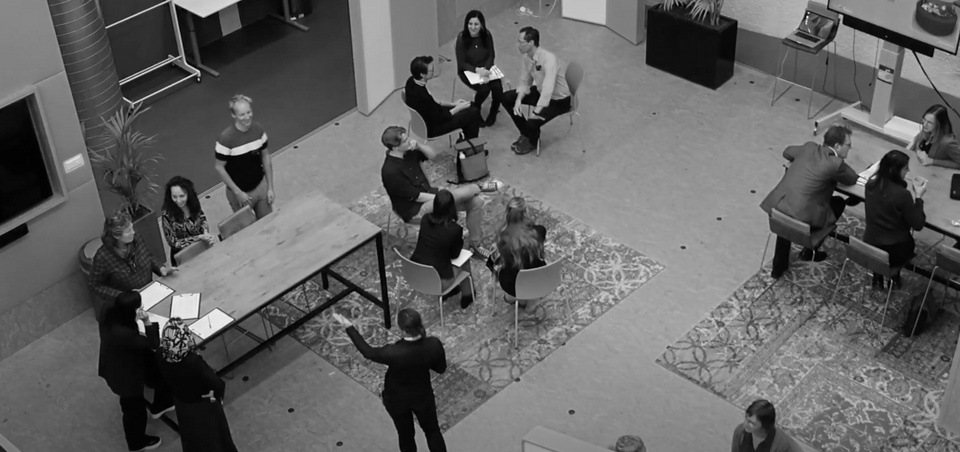
The TU Delft Education Day is the event of the year to connect educators* across faculties, share educational knowledge and experiences, celebrate education and spotlight educators with their practices and experiments.
On 7 November, the TU Delft Education Day 2024 took place, celebrating the theme "Inspired – the Magic of Meaningful Moments".
The event was a truly inspiring thanks to the engaging speakers, session leaders, education awards, and educators and support staff from all faculties who participated.
Use the buttons below to watch videos from the day to relive the inspiration that filled the Teaching Lab and Pulse.
Aftermovie Education Day 2024
-
Feeling INSPIRED sparks curiosity, it propels to action, it allows for changes to take place. There is nothing quite like being inspired or being an inspirer yourself – even when you are not aware of it. What inspires an individual is very personal. Inspiration has its roots in moments of interaction that can lead to meaningful experiences and impactful decisions. One might even call these moments magical.
Education is the place where these magical moments are created, where they occur spontaneously and where they are fuelled and strengthened.
Join us 7 November at the TU Delft Education Day, where we will explore “INSPIRED - The Magic of Meaningful Moments” from three perspectives:
Inspired to Learn (& Learn to be Inspired)
Inspired to Teach (& Teach to be Inspired)
Inspired to Change (& Change to be Inspired)
-
Time Activity Speakers 09:30 Walk-in
10:00 Opening Annoesjka Cabo 10:15 Keynote Speech Ibo van de Poel | 'What is inspiration?' 11:15
Session Round 1
Interactive sessions led by Educators:
Detailed info under 'Sessions Overview'- Sven Aerts
- Johanna Colgrove
- Bob van Vliet
- Stefan Persaud & Bas Flipsen
- Kristel Aalbers & Nina Bohm & Milou Reincke
- Martin Klomp & Lotte Boekestijn
- Remon Rooij & Erdem Onan
12:15 Lunch 13:00
Short Plenaries
SPiCE student pool - interative moment 14:00
Session Round 2
Interactive sessions led by Educators:
Detailed info under 'Sessions Overview'
- Milene Guerreiro Gonçalves
- Freek Pols
- Luisa Calabrese
- Florian Gerritsen & Willem Vermaat
- Irene Fernandez Villegas
- Jorge Martinez Castaneda & Wenyi Chu
15:00 Connect&Network 15:30 Award Ceremony 16:00 Keynote Speech Jessica Kuitenbrouwer | 'What we can learn about Gen Z to help us inspire and be inspired in education.' 16:30 Closing Activity Kristel Aalbers 16:45 Final Words Annoesjka Cabo 17:00 Drinks & Bites -
Keynote speakers
Ibo van de Poel
Ibo van de Poel | 10:15
'What is inspiration?'I aim to explore what inspiration is. We can be inspired by someone (such as a teacher) or by something (like a new idea or something we observe). We can also be inspired to take action, for example, to investigate a phenomenon or to help others. Inspiration is sometimes seen as a momentary, individual feeling, but I will argue that it is more than that. We should also ask the question: how can we foster a culture of inspiration in teaching?
Ibo van de Poel is the Antoni van Leeuwenhoek Professor of Ethics and Technology at the School of Technology, Policy, and Management at Delft University of Technology. He is a member of the Dutch Royal Academy of the Sciences (KNAW) and was awarded the prestigious TU Delft Leermeester title in 2024.
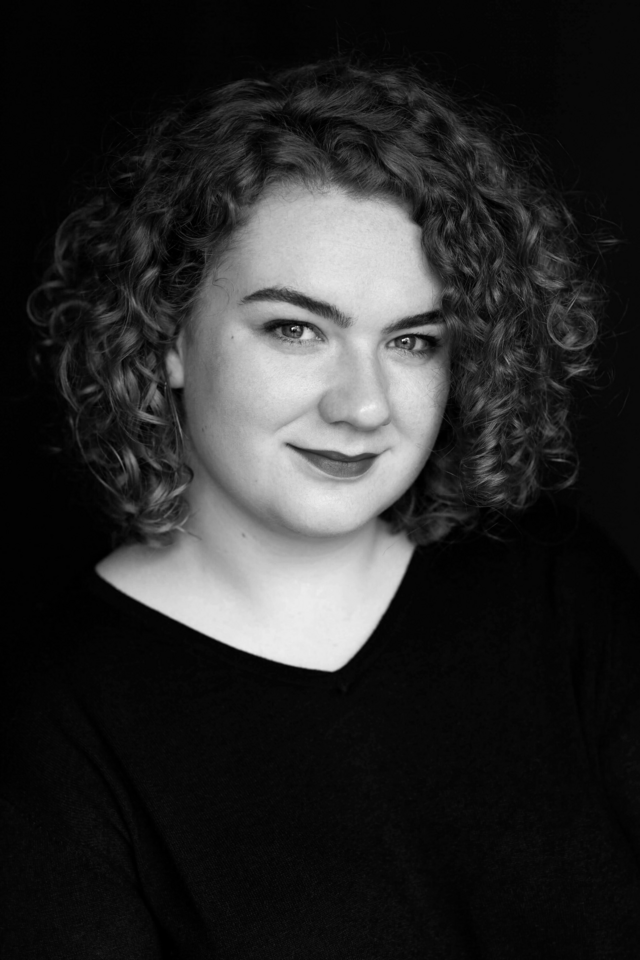
Jessica Kuitenbrouwer
Jessica Kuitenbrouwer | 16:00
'What we can learn about Gen Z to help us inspire and be insired in education.'Jessica (born 1993, zillennial) is a journalist (Het Financieele Dagblad, NRC, and Het Parool), columnist ( Trouw), and podcast host (Havermelkelite, the podcast).
Through personal stories, she analyzes the lives of her generation — ranging from ‘trend victims’ to ‘aspirational class climbers’ — and explores how Millennials, Gen Z, and those who, like herself, fall in between, differ from older generations. In addition, Jessica gives lectures on generational differences in the workplace and offers training to (aspiring) opinion leaders.
Session leaders

Bas Flipsen

Johanna Colgrove
Nina Bohm

Stefan Persaud
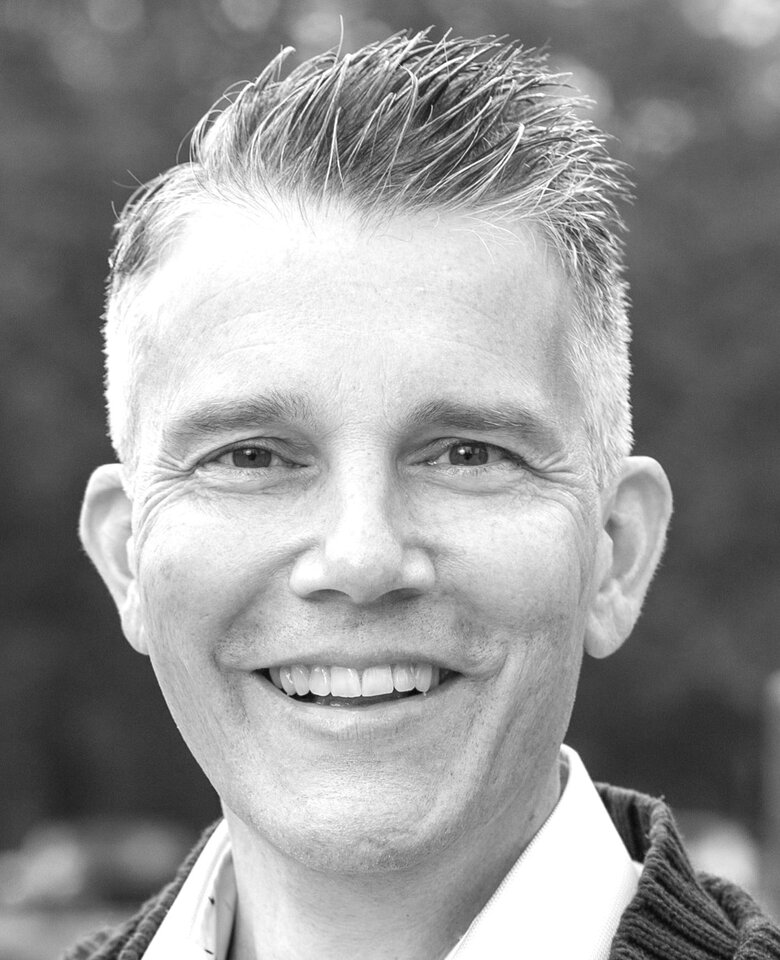
Remon Rooij
Florian Gerritsen

Bob van Vliet

Kristel Aalbers

Sven Aerts
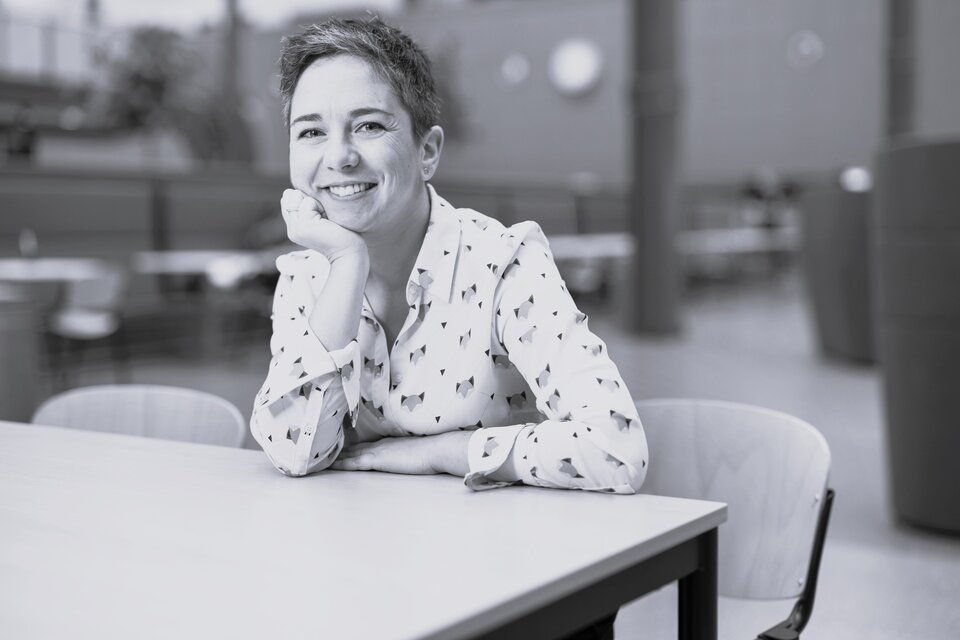
Milene Guerreiro Gonçalves

Freek Pols

Luisa Calabrese
Jorge Martinez Castaneda
Erdem Onan
Wenyi Chu

Irene Fernandez Villegas

Willem Vermaat
Milou Reincke
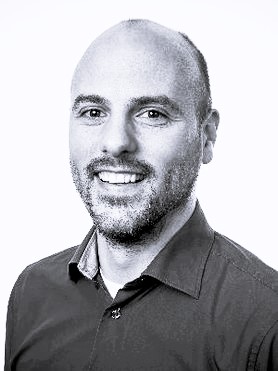
Martin Klomp

Lotte Boekestijn
-
-

Sven Aerts
Homo Docens: What makes your heart tick?
A teacher acts as a mediator between the curriculum and the student. While we have (finally!) reached a point where it is recognized that no two students are alike, educators are still often expected to possess a uniform set of skills. This institutional perspective, though pragmatic, can hinder the deeper goal of education: fostering genuine motivation.
Motivation thrives through both inspiration and aspiration, and this is true for both students and educators. In this interactive session, I will share some of my own experiences with motivation and invite you to share yours as well. Students often inspire us in unexpected ways, revealing new perspectives that can awaken our passion as educators and deepen our connection to the material.
My hope is that you will leave the room praising your unique qualities, for there is no substitute for an enthusiastic teacher.

Johanna Colgrove
From Interpersonal to AI—Improving students abilities to ask questions
Are we teaching our students the fundamental skills they really need? One of the fundamental skills of a scientist or engineer is the ability to ask better questions. Great questions drive impactful research and conversations. Students need time and space to develop this skill especially as they move from high school into bachelor programmes.
Using insights from Introduction to Nanobiology, we’ll introduce how a module within this course helped students improve their ability to ask questions, think critically and begin building their scientific skills.
In this session, you’ll have the chance to try out some activities from the course and discuss possible applications in practice.

Bob van Vliet
Turning inspiration into a coherent argument: writing better design reports
Students often struggle to produce well-structured reports for design projects. Their instinct is to give an historical narrative of everything that happened during their project to explain how and why their design came to be the way it is. But engineering design is an iterative and sometimes chaotic process, so this leads to poorly structured and unconvincing reports and presentations.
How can you turn those magic moments of insight and inspiration into a coherent argument? In my Comenius project I am developing teaching tools to help students logically structure their arguments in support of a design proposal.
In this session we’re going to dig into how we instruct students to document the result of design projects, what they find difficult about it, and how we can support them better and more efficiently.

Stefan Persaud

Bas Flipsen
Connect: the secret formula of coaching student teams
Is coaching international student teams a secret? Not really. However, it’s certainly complex, and the most effective way to navigate this landscape is to immerse yourself fully and be open.
Join Stefan and Bas in this dynamic workshop, in which you will be immersed in real-life coaching scenarios and explore how to respond to them.
This session will be interactive, playful, and filled with reflections and insights drawn from the book CONNECT. You’ll discover practical tools and examples that will empower you to create meaningful moments, fostering growth and collaboration among your teams. Join us to unlock the potential of coaching international student teams!
Kristel Aalbers
Nina Bohm
Milou Reincke
Personal Development Weeks (POW) BSc Bouwkunde - a week of reflecting activities
Join us for an engaging session inspired by the new Personal Development Weeks (Persoonlijke OntwikkelingsWeken) introduced in the BSc Bouwkunde program. These weeks offer students space for reflection and growth, both personally and professionally.
In this session, you will experience key aspects of the activities that Bouwkunde students participated in at the Opening of the academic year 2024-2025. These include a guided meditation to encourage self-awareness, the use of the OntWikkel notebook wrap to explore personal learning goals, and a personal letter that outlines the development journey, along with a preview of upcoming reflection assignments.
You will gain valuable insight into how personal development is embedded in the Bouwkunde curriculum, with time dedicated to sharing good practices from across TU Delft. This session may even serve as the foundation for an ongoing community focused on personal growth at TU Delft.

Martin Klomp

Lotte Boekestijn
Empowering Students with Multidisciplinary Collaboration
Working together across disciplines and institutes can ignite new ideas, and spark creative solutions. This is exactly what we try to achieve in the robotics minor, where students from different background build a robotic prototype for a client.
In this interactive session, participants will explore the dynamics of multidisciplinary collaboration through an engaging challenge. You’ll experience firsthand how students learn to communicate, problem-solve, and work together effectively, gaining insights into how to foster these skills in your own teaching.
Join us to discover how diverse perspectives can create impactful educational moments that resonate beyond the classroom.

Remon Rooij
Erdem Onan
Stimulating Student Agency
How can we inspire students to take more responsibility for their learning? That's the overarching question we are exploring in our IDEE project ‘Students Taking Responsibility for Their Learning’!
This workshop focuses on how different teaching practices can influence and stimulate students’ agency, autonomy, and responsibility in and for their learning. Using role play, we will approach this question from various perspectives, exploring how student agency and responsibility can be ‘seen’: from a constructive alignment, an interhuman and relational, a motivational, and a social safety point of view.
Participants will get concrete ideas about how to intervene in course design and classroom setup, how that impacts student and teacher activities, and how to monitor, evaluate, and measure its effects.
-

Milene Guerreiro Gonçalves
Meaningful moments: inspiring a 'brave space' in the classroom
This session will explore how educators can create brave spaces in their classrooms - an educational environment where students and educators feel empowered to embrace uncertainty and engage in dialogue. We’ll apply practical strategies to explore meaningful moments in your courses, to foster experimentation, daring attitudes and reflection.
What’s in it for you? You will leave with actionable tools to build a 'brave space' in your educational approaches, helping students (and teachers) embrace discomfort, creativity, and reflection.
Take-away: Participants will gain (creative) confidence in promoting a learning environment that encourages both personal and collective growth. By cultivating brave spaces and focusing on key moments, we align with the Education Day theme INSPIRED—motivating students and educators alike to learn, teach, and embrace their educational journeys.

Freek Pols
Creating magical, meaningful moments with demonstrations
Who doesn’t enjoy a good (physics) demonstration? They are just fantastic and offer many wonderful possibilities to show the beauty of science and amaze students. If done properly, they can also engage students in critical thinking and teach them aspects of (e.g.) scientific inquiry. But in order not only to fascinate students, but also create a meaningful moment (educational wise), one has to consider the pedagogical approach.
In this workshop, various demonstrations from our recently published online book will be shown, and performed just like in class. We will discuss the ways how to engage students and how to get them actively thinking about the phenomenon shown. Get your self inspired, we have 99 demonstrations at hand…

Luisa Calabrese
Art on Campus: building a community of inspired and inspiring educators
Curious how art-driven approaches can enhance engineering education? Already exploring these methods or skeptical about their value? Join us for a dynamic workshop that will expand your teaching toolkit and refine your pedagogical strategies.
In this interactive session, we’ll dive into practical art-driven techniques, like using visual arts to clarify complex concepts and applying design thinking for creative problem-solving. You’ll gain specific skills to improve student engagement and understanding. Engage in meaningful discussions and debates about art’s role in technical curricula, and connect with a network of educators dedicated to advancing innovative teaching practices.
Whether you're an advocate, curious, or skeptical, this workshop offers actionable insights and the chance to collaborate on integrating art-driven pedagogies into engineering education. Secure your spot now and be part of a transformative educational community!
Florian Gerritsen

Willem Vermaat
Don't come prepared!
Presenting in front of a group is hard. We know. We’ve been teaching it for years and we’re still nervous about hosting this session. We’ve found that one of the reasons it can be hard is the (high) standards we set for ourselves. Standards that not only play a role when we’re presenting, but in many aspects of academic life. We want to do well. We have a good idea of what ‘doing well’ is. We don’t want to make mistakes. We come prepared.
Let's see what happens if we do not.
In this session we’ll use exercises from improvised theatre to get to know our inner critics and celebrate our errors. Instead of analysing from a distance (we’re in academia, we already know how to do that), we’ll be actively playing games aimed at cooperation and accepting the input of our fellow players. How you react to such exercises can provide insight into your own standards and how you judge both yourself and others according to these. And here’s the key: learning to be comfortable with uncertainty and mistakes helps with more than presenting, it can help you create a more supportive and engaging environment for your students. Also it’s just a lot of fun!
Inspiration requires a degree of novelty or unexpectedness. That’s far more difficult if we already know what’s going to happen. So… don’t come prepared!

Irene Fernandez Villegas
Sustainable Journeys in Academia
“More than fifteen years ago I kicked off my academic career as a highly driven researcher determined to become the biggest name in my area of expertise within the field of aircraft structures. Well on my path towards that goal an innocent question in an interview planted a seed that would profoundly change the course of my career. Ten years after that interview, I am investing my energy in the deployment of mandatory climate education for all our students at TUDelft and I feel more fulfilled than ever…”
In our professional lives we all follow different journeys with perhaps unexpected changes of events which can deeply inspire those around us. If a question can inspire a whole career change for me, it can do for you too.
In this session we want to create a safe space in which these questions are asked (following the 'Inner Development Goals' framework). A space where we reflect on how we are creating our careers and how we can tweak them to have a positive impact for us and for those around us.
Jorge Martinez Castaneda
Wenyi Chu
Let's cook together a WOK of transdisciplinary teaching and learning
Ingredients: You, us, and a spice mix of different education flavors.
Recipe: Transdisciplinary Teaching & Learning (TDTL) is a participatory approach, that allows various disciplines and non-academic stakeholders to learn and create knowledge together.
Do you like your students shine not only in your class, but also while working with other humans when tackling real-life challenges?
Then you can add a pine of fresh perspectives from other disciplines to your own field, use the fire of authentic learning to let them experience real-life problems and then let the magic happen: Students develop “transversal skills” such as perspective-taking, decision-making, critical thinking, and even collaborative empathy, for a wonderful end result! Enjoy!
Would you like to try this recipe with us? Then join our interactive WOKshop and try it for yourself!
* ‘Educators’ meaning everyone with a teaching role, from Phd to Full Professor to fulltime Lecturer.
Inspiration (noun)
in· spi· ra· tion
The feeling when you suddenly get a new idea or insight or see the world in a different light. You have the urge to express or actualize this new insight.*
